Home Buying & Credit Scores: What You Need to Know
Navigating the path to homeownership is a journey that requires preparation and understanding, especially when it comes to financing your dream home. For first-time home buyers, a critical part of this journey involves understanding the importance of credit scores and how they impact the pre-approval and mortgage process. With recent changes in mortgage rules favoring higher credit scores and lower debt-to-income ratios, it is important to dive deeper into what you need to know to position yourself favorably in today's market.
The Centrality of Credit ScoresYour credit score is a numerical representation of your creditworthiness, based on your credit history. It influences not only the likelihood of being approved for a home loan, but also the terms and interest rates offered by lenders. As you embark on the home-buying process, recognize that a good credit score is a powerful tool in securing favorable mortgage options.
Recent Changes in Mortgage Requirements
Lenders are continuously adapting their requirements to reduce risks, and recent changes have seen a shift towards more stringent criteria:
• Higher Credit Scores: In response to economic changes and risk management strategies, many lenders are raising the minimum credit score requirements. Where a good score might have previously secured you a competitive rate, lenders are now looking for excellent scores to offer the best terms.
• Lower Debt-to-Income Ratios: Your debt-to-income (DTI) ratio is another crucial factor in the mortgage application process. It's a measure of your monthly debt payments compared to your gross monthly income. Nowadays, lenders prefer a lower DTI ratio, as it indicates a better balance between debt and income, implying a lower risk for the lender.
Steps to Adapt to New Mortgage Rules
1. Check and Improve Your Credit Score: Regularly review your credit report for accuracy and identify areas for improvement. Pay down debts, especially high-interest credit cards, and ensure all bills are paid on time.
2. Lower Your Debt-to-Income Ratio: Before applying for a mortgage, try to reduce your existing debts. This might involve paying down loans or credit card balances, which will improve both your DTI ratio and credit score.
3. Consider All Your Mortgage Options: While traditional mortgages might have stricter requirements, other types of loans, like FHA loans, might be more forgiving on credit scores and offer more flexible DTI ratios.
Special Advice for First-time Home Buyers
If you're a first-time home buyer, explore programs designed specifically for you. These programs often provide more flexible options and can be a good fit if you're struggling to meet the higher credit score or lower DTI ratio requirements of conventional loans.
Conclusion
The home buying process, particularly financing, is evolving with a clear trend towards higher credit score requirements and lower debt-to-income ratios. By understanding these changes and preparing accordingly, you can position yourself as an attractive candidate to lenders. Focus on building a strong credit score, managing your debts wisely, and exploring all the mortgage options available to you. With the right approach and preparation, you'll navigate the new landscape of home financing and move closer to owning your dream home. Happy house hunting!
Start your home-buying journey here > Start Here
A Beginner's Guide to Mortgages
Welcome to the exciting world of homeownership! If you're a first-time homebuyer, the journey ahead is filled with opportunity and, yes, a fair bit of paperwork. One of the most important elements you'll encounter is the mortgage process. Understanding mortgages is crucial, but it doesn't have to be daunting. Let's break it down into simple, manageable pieces so you can approach this journey with confidence and clarity.
What is a Mortgage?
Think of a mortgage as a type of loan specifically for buying property. When you buy a home, unless you're paying the full amount upfront (which is quite rare), you'll need to borrow money. This borrowed amount, along with a decided interest rate, is what you'll pay back over time—this is your mortgage.
Key Mortgage Components
Principal: This is the total amount you borrow to purchase your home.
Interest: Think of this as the cost of borrowing money. It is a percentage of the principal and will be added to your monthly payments.
Term: This is the length of time you agree to pay back the mortgage. Common terms are 15, 20, or 30 years.
Types of Mortgages
Fixed-Rate Mortgages: Your interest rate stays the same throughout the entire term. This means your monthly payment remains consistent, making budgeting easier.
Adjustable-Rate Mortgages (ARMs): The interest rate changes over time based on market conditions. It typically starts lower than fixed-rate mortgages but can increase or decrease in the future.
Interest Rates and How They Affect You
Interest rates can significantly impact your monthly payments and the total amount you'll pay over the life of the loan. They vary depending on several factors, including your credit score, down payment, and the current market. A lower interest rate means lower monthly payments and less paid over time.
Getting Pre-Approved for a Mortgage
Before you start house hunting, getting pre-approved for a mortgage is a smart move. This involves a lender reviewing your financial information and telling you how much they're willing to lend you. It gives you a clear budget for your search and shows sellers that you're a serious buyer.
The Mortgage Process: Step by Step
Application: You'll start by filling out an application with a lender, providing information about your income, debts, and assets.
Documentation: Be prepared to provide financial documents like pay stubs, tax returns, and bank statements.
Credit Check: The lender will check your credit score to determine your interest rate and eligibility.
Appraisal: The lender will require an appraisal of the property to ensure it's worth the amount you're borrowing.
Approval: If everything checks out, you'll be approved for the loan. Now it's time to finalize the deal and move towards closing!
Tips for Success
Save for a Down Payment: The more you put down, the less you have to borrow. Plus, a larger down payment often secures better terms and rates.
Improve Your Credit Score: A higher credit score can qualify you for better interest rates.
Shop Around: Don't settle for the first mortgage offer. Compare rates and terms from multiple lenders to find the best deal.
Ask Questions: If anything is unclear, ask your lender, real estate agent, or a trusted advisor. No question is too small when it comes to such a significant commitment.
Embarking on the path to homeownership is a landmark moment in your life. With a solid understanding of how mortgages work, you'll navigate this journey with greater ease and confidence. Remember, this isn't just about buying property—it's about setting up a home base for your future. So, take a deep breath, gather your documents, and step confidently into the world of real estate. Your dream home awaits!
To get started on your journey, register here > Apply Now
Sarasota-Manatee's Bright 2024 Forecast
The latest report on the housing market in Sarasota-Manatee has revealed a surprising trend. Despite a significant increase in supply and rising interest rates, home prices have remained relatively stable. This phenomenon challenges the traditional economic principle that states that increased supply and higher borrowing costs should decrease home prices. However, the local real estate market in Sarasota-Manatee has defied these expectations, closing in 2023 with a slight 1% increase in median home prices.
Several factors have contributed to this unexpected resilience. Firstly, the past few years have seen unprecedented events, notably the COVID-19 pandemic, significantly influencing market dynamics. With an upsurge in remote work, many people have sought more comfortable living spaces or advanced their retirement plans, fueling the housing market. Demand has remained steady despite the Federal Reserve's 11 rate hikes since March 2022, pushing mortgage rates to nearly 8%. The slight increase in closed sales by 0.5% throughout the first 11 months of 2023 suggests a resilient demand, possibly due to the area's growing appeal and unique offerings.
Looking ahead, experts predict a brighter horizon for the Sarasota-Manatee housing market in 2024. With indications of rate cuts by the Federal Reserve, the market might see a resurgence of buyers previously deterred by high rates. This "pent-up demand" is expected to invigorate the market, possibly leading to price increases as more buyers re-enter the market. Moreover, the enduring strength of the luxury segment, as evidenced by record sales and new upscale developments, highlights the continued appeal of Sarasota-Manatee as a premium living destination.
The robust luxury market in the Sarasota area, ongoing developments, and community growth signify stability and potential growth. It stands as a testament to the area's resilience and adaptability, making it a unique case study in the real estate world. As the market adjusts to new economic conditions, it's clear that the Sarasota-Manatee area continues to attract interest and investment, promising a dynamic future for residents and investors alike.
Tampa and Sarasota: Florida's Rising Stars in Real Estate
When Money.com explores the most desirable places to live, several factors come to the forefront: economic opportunities, quality of life, diversity, and prospects for a flourishing future. In their annual examination of these criteria, certain locations consistently stand out. This year, three Florida cities have captured the spotlight in their ranking, two of which are on the Gulf Coast: Tampa, and Sarasota, shining as exemplary places to call home.
Tampa: A Vibrant Urban Oasis
Tampa is a city that truly encapsulates the essence of a vibrant urban lifestyle. With its bustling nightlife, particularly in the historic Ybor City district, and a variety of entertainment options, it's a city that never sleeps. The real estate market here offers a variety of choices that cater to different preferences, all set against the backdrop of Tampa’s rich cultural tapestry. The city’s dynamic nature is further complemented by its thriving food and craft beer scenes, making it an ideal destination for those who seek an energetic and culturally diverse urban environment.
Sarasota: Coastal Living at Its Finest
Sarasota, known for its idyllic beaches and cultural richness, offers a more tranquil yet equally enriching living experience. The city's allure includes its world-renowned beaches such as Siesta Key and Longboat Key, where the natural beauty of Florida's coast is on full display. Art lovers will find themselves at home in Sarasota, with landmarks like the Ringling Museum offering a glimpse into a rich artistic heritage. The real estate in Sarasota is reflective of its status as a premium coastal destination, with properties that offer luxurious living and scenic views.
Conclusion
Both Tampa and Sarasota represent the diverse appeal of Florida’s real estate market. Whether you're drawn to the vibrant city life of Tampa or the serene beaches of Sarasota, these cities are not just places to live, but destinations where lifestyles are defined and dreams are realized. As Florida continues to attract individuals and families seeking quality living, Tampa and Sarasota stand out as top choices for those looking to make a move to the Sunshine State.
In conclusion, exploring real estate opportunities in Tampa and Sarasota is not just about finding a new home; it's about discovering a community and a lifestyle that resonates with your aspirations. As these cities continue to grow and evolve, they remain beacons for those seeking a blend of opportunity, culture, and quality living.
3 Financial Resolutions To Make If You Want To Buy A Home In The New Year
3 Financial Resolutions To Make If You Want To Buy A Home In The New Year
The new year is right around the corner, and many people are starting to think seriously about their New Year’s Resolutions. And while the most popular resolutions aren’t going anywhere (eat healthy, work out, spend less time in front of a screen), if you’re looking to buy a home next year, at least a few of your resolutions should be of the financial variety.
Starting the new year off on the right financial foot by making financial resolutions can set you up for success and help you get closer to your goal of buying a home. Here are four financial resolutions you should consider making if you want to buy a home in the new year:
1. Track your spending
via GIPHY
It’s impossible to get a handle on your financial situation if you don’t know what this situation actually is. Which is why your first financial resolution needs to be to track your spending.
Tracking your spending will give you a clear picture of how much money you’re spending, where you’re spending it, and where the opportunities to cut back are.
The key to successfully tracking your spending is to track every single cent you spend. You can create a spreadsheet and manually input every purchase or you can use a money monitoring app like Mint; Mint connects to your debit and credit cards and then tracks and categorizes your purchases throughout the month.
Once you’ve tracked your spending for a month, it’s time to dive into the numbers. How much of your income are you spending on necessities (like living expenses and utilities)? How much is going towards paying down debt? How much are you saving?
It’s only when you have a clear idea of your financial situation that you can determine if you’re ready to buy a home — and, if so, just how much home you can afford without putting yourself in a financially challenging situation.
2. Cut out unnecessary expenses
via GIPHY
A great side effect of tracking your spending is that it allows you to see opportunities to cut back. Which leads into resolution #2: cut out any unnecessary expenses.
If you’re serious about buying a home, you need to rein in unnecessary spending and pad your savings account as much as possible. Are you spending a significant amount of money every month eating out at restaurants? Commit to eating out one or two times a month and making meals at home the rest of the time to save some cash. Is your coffee habit costing you $5 a day? Brew a cup in your kitchen before you leave for work. Are you spending a fortune on a gym membership you barely use? Cancel and use free workout videos on YouTube to get your exercise. Do you pay for premium cable when you’d be fine with basic? Downgrade and lower your bill.
Now, keep in mind — even though you’ll want to go into savings mode before you buy a home, that doesn’t mean you shouldn’t spend any money on yourself. If you don’t spend any money on fun and entertainment, it can actually make it harder to stick to your budget. Allot a certain amount of money per month you can use as you please; that “fun money” will make it easier to stick to your budget the rest of the time.
The more unnecessary expenses you cut out of your budget, the more you’ll have to put in your savings account — and the faster you’ll be able to make your dream of owning a home a reality.
3. Clean up your credit
via GIPHY
Another financial resolution to make if you want to buy a home? Clean up your credit.
Your credit score plays a huge part in determining if you get a mortgage and, if so, how competitive your interest rates. A good credit score can save you thousands (even tens of thousands) of dollars over the course of your loan, which is why it’s important to get it as high as possible before you purchase a home.
First, you’ll want to get a copy of your credit report and check for any errors. Errors are more common than you’d think, and even a small mistake can drag down your score. If you find an error on your report, you’ll need to contact the credit bureaus to have it removed.
Once your report is error free, it’s time to do everything you can to boost your credit score. Paying down debt, paying all your bills on time, and keeping the percentage of credit used low can all help to increase your score — which will help you get a better deal on your mortgage when you apply.
There are plenty of resolutions you can make in order to hit your goals in the new year. But if your goal is to buy a house, these financial resolutions are the key to getting there.
Think Twice Before Waiting for Lower Home Prices
As the housing market continues to change, you may be wondering where it’ll go from here. One factor you’re probably thinking about is home prices, which have come down a bit since they peaked last June. And you’ve likely heard something in the news or on social media about a price crash on the horizon. As a result, you may be holding off on buying a home until prices drop significantly. But that’s not the best strategy.
A recent survey from Zonda shows 53% of millennials are still renting right now because they’re waiting for home prices to come down. But here’s the thing: the most recent data shows that home prices appear to have bottomed out and are now on the rise again. Selma Hepp, Chief Economist at CoreLogic, reports:
“U.S. home prices rose by 0.8% in February . . . indicating that prices in most markets have already bottomed out.”
And the latest data from Black Knight shows the same shift. The graph below compares home price trends in November to those in February:
So, should you keep waiting to buy a home until prices come down? If you factor in what the experts are saying, you probably shouldn’t. The data shows prices are increasing in much of the country, not decreasing. And the latest data from the Home Price Expectation Survey indicates that experts project home prices will rise steadily and return to more normal levels of appreciation after 2023. The best way to understand what home values are doing in your area is to work with a local real estate professional who can give you the latest insights and expert advice.
Bottom Line
If you’re waiting to buy a home until prices come down, you may want to reconsider. Let’s connect to make sure you understand what’s happening in our local housing market.
Condos Are a Great Entryway to Homeownership
If you’re looking to buy your first home, you may want to consider condos. Let’s connect to explore your options.
An Expert Gives You Clarity in Today’s Housing Market
An Expert Gives You Clarity in Today’s Housing Market
The housing market has been going through shifts lately. That’s why it’s so important to work with an industry professional who can be your guide throughout the process.
A real estate expert uses their knowledge of what’s really happening with home prices, housing supply, expert projections, and more to give you the best advice. Someone who can provide clarity like that is critical right now. Jay Thompson, Real Estate Industry Consultant, explains:
“Housing market headlines are everywhere. Many are quite sensational, ending with exclamation points or predicting impending doom for the industry. Clickbait, the sensationalizing of headlines and content, has been an issue since the dawn of the internet, and housing news is not immune to it.”
Unfortunately, when information in the media isn’t clear, it can generate a lot of fear and uncertainty in the market. As Jason Lewris, Co-Founder and Chief Data Officer at Parcl, says:
“In the absence of trustworthy, up-to-date information, real estate decisions are increasingly being driven by fear, uncertainty, and doubt.”
But it doesn’t have to be that way. Buying a home is a big decision, and it should be one you feel confident making. You can lean on an expert to help you separate fact from fiction and get the answers you need.
The right agent can help you understand what’s happening at the national and local levels, and they can debunk headlines using data you can trust. Experts have in-depth knowledge of the industry and can provide context, so you know how current trends compare to the normal ebbs and flows in the industry, historical data, and more.
Then, to make sure you have the full picture, an agent can tell you if your local area is following the national trend or if they’re seeing something different in your market. Together, you can use all that information to make the best possible decision.
After all, making a move is a potentially life-changing milestone. It should be something you feel ready for and excited about. And that’s where a trusted expert comes in.
Bottom Line
For expert advice and the latest housing market insights, let’s connect.
FHA Loans Now Cost $117 Less Per Month
Andrii Yalanskyi, Getty Images
FEBRUARY 22, 2023
FHA Loans Now Cost $117 Less Per Month
By Kerry Smith
FHA lowered its mortgage-insurance premium for borrowers by 30 basis points. The $117 monthly savings is based on a $467.7K home with 3.5% down.
WASHINGTON – The Federal Housing Administration (FHA) lowered its mortgage-insurance premium (MPI). The MPI – a fee charged to FHA borrowers largely meant to offset the risk from foreclosures – was lowered by 30 basis points. It announced the change in Mortgagee Letter 2023-05.
MPI money goes into FHA’s capital reserve, and federal law requires a capital reserve ratio of 2%. In their 2022 annual report to Congress, however, FHA reported an 11% capital reserve ratio – 9% above the requirement. That allows FHA to lower the premium for borrowers going forward.
The reduction will benefit about 850,000 borrowers over the coming year, FHA claims, saving them $678 million overall. For the average borrower purchasing a one-unit, single-family home, it means a savings of more than $1,400 per year ($117 per month), assuming a 3.5% down payment and a national median home price of $467,700.
However, FHA loan borrowers often buy homes toward the lower end of the price range, and FHA says its average borrower will likely see savings in the $800 per year range ($67 per month).
The National Association of Realtors® (NAR) and other housing organizations have been pushing for a lower MPI, and their advocacy grew stronger in 2022 as mortgage rates began their rapid rise.
“FHA’s announcement strikes an appropriate balance between assisting homeowners and ensuring the capital reserve ratio and insurance fund remain strong,” says NAR President Kenny Parcell. “We applaud the Administration for this action. In this competitive market, new and low- to moderate-income buyers are often left behind. This reduction will help alleviate some of the financial stress those potential buyers encounter when purchasing a home and allow more people across the country to achieve the American Dream of homeownership.”
© 2023 Florida Realtors®
Think Twice Before Waiting for 3% Mortgage Rates
Think Twice Before Waiting for 3% Mortgage Rates
Last year, the Federal Reserve took action to try to bring down inflation. In response to those efforts, mortgage rates jumped up rapidly from the record lows we saw in 2021, peaking at just over 7% last October. Hopeful buyers experienced a hit to their purchasing power as a result, and some decided to press pause on their plans.
Today, the rate of inflation is starting to drop. And as a result, mortgage rates have dipped below last year’s peak. Sam Khater, Chief Economist at Freddie Mac, shares:
“While mortgage market activity has significantly shrunk over the last year, inflationary pressures are easing and should lead to lower mortgage rates in 2023.”
That’s potentially great news if you’re a buyer aiming to jump back into the housing market. Any drop in mortgage rates helps boost your purchasing power by bringing down your expected monthly mortgage payment. This means the lower mortgage rates experts forecast this year could be just what you need to reignite your homebuying goals.
While this opens up a window of opportunity for you, remember: you shouldn’t expect rates to drop back down to record lows like we saw in 2021. Experts agree that’s not the range buyers should bank on. Greg McBride, Chief Financial Analyst at Bankrate, explains:
“I think we could be surprised at how much mortgage rates pull back this year. But we’re not going back to 3 percent anytime soon, because inflation is not going back to 2 percent anytime soon.”
It’s important to have a realistic vision for what you can expect this year, and that’s where the advice of expert real estate advisors is critical. You may be surprised by the impact even a mild drop in mortgage rates has on your budget. If you’re ready to buy a home now, today’s market presents the opportunity to get a more affordable mortgage rate, find your dream home, and face less competition from other buyers.
Bottom Line
The recent pullback in mortgage rates is great news – but if you’re ready to buy now, holding out for 3% is a mistake. Work with a local lender to learn how today’s rates impact your goals, and let’s connect to explore your options in our area.
What’s Ahead for Mortgage Rates and Home Prices?
What’s Ahead for Mortgage Rates and Home Prices?
Now that the end of 2022 is within sight, you may be wondering what’s going to happen in the housing market next year and what that may mean if you’re thinking about buying a home. Here’s a look at the latest expert insights on both mortgage rates and home prices so you can make your best move possible.
Mortgage Rates Will Continue To Respond to Inflation
There’s no doubt mortgage rates have skyrocketed this year as the market responded to high inflation. The increases we’ve seen were fast and dramatic, and the average 30-year fixed mortgage rate even surpassed 7% at the end of last month. In fact, it’s the first time they’ve risen this high in over 20 years (see graph below):
In their latest quarterly report, Freddie Mac explains just how fast the climb in rates has been:
“Just one year ago, rates were under 3%. This means that while mortgage rates are not as high as they were in the 80’s, they have more than doubled in the past year. Mortgage rates have never doubled in a year before.”
Because we’re in unprecedented territory, it’s hard to say with certainty where mortgage rates will go from here. Projecting the future of mortgage rates is far from an exact science, but experts do agree that, moving forward, mortgage rates will continue to respond to inflation. If inflation stays high, mortgage rates likely will too.
Home Price Changes Will Vary by Market
As buyer demand has eased this year in response to those higher mortgage rates, home prices have moderated in many markets too. In terms of the forecast for next year, expert projections are mixed. The general consensus is home price appreciation will vary by local market, with more significant changes happening in overheated areas. As Mark Fleming, Chief Economist at First American, says:
“House price appreciation has slowed in all 50 markets we track, but the deceleration is generally more dramatic in areas that experienced the strongest peak appreciation rates.”
Basically, some areas may still see slight price growth while others may see slight price declines. It all depends on other factors at play in that local market, like the balance between supply and demand. This may be why experts are divided on their latest national forecasts (see graph below):
Bottom Line
If you want to know what’s happening with home prices or mortgage rates, let’s connect so you have the latest on what experts are saying and what that means for our area.
Expert Forecasts on Mortgage Rates
If you’ve been thinking of buying a home, you may have been watching what’s happened with mortgage rates over the past year. It’s true they’ve risen dramatically, but where will they go from here, especially as the market continues to slow?
As you think about your homeownership goals and decide if now’s the time to make your move, the best place to turn to for that information is the professionals. Here’s a summary of the latest mortgage rate forecasts from housing market experts.
Experts Project Mortgage Rates Will Stabilize
While mortgage rates continue to fluctuate due to ongoing inflationary pressures and economic uncertainty, experts project they’ll start to stabilize in the months ahead. According to the latest projections, mortgage rates are expected to hover in the low to mid 5% range initially, and then potentially dip into the high 4% range by later next year (see chart below):
That could bring you some welcome relief. So far this year, mortgage rates have climbed over two percentage points due to the Federal Reserve’s response to inflation, and that’s made it more expensive to buy a home. And wondering if the rise in rates will continue is keeping some prospective buyers on the sidelines.
But now that experts say mortgage rates should stabilize, this gives you a bit more certainty about what they think the future holds, and that may help you feel more confident about your decision to buy a home.
Bottom Line
Whether you’re looking to buy your first home, move up to a larger home, or even downsize, you need to know what’s happening in the housing market so you can make the most informed decision possible. Let’s connect to discuss your goals and determine the best plan for your move.
Think Home Prices Are Going To Fall? Think Again
Think Home Prices Are Going To Fall? Think Again
Over the last two years, the rate of home prices appreciated at a dramatic pace. While that led to incredible equity gains for homeowners, it’s also caused some buyers to wonder if home prices will fall. It’s important to know the housing market isn’t a bubble about to burst, and home price growth is supported by strong market fundamentals.
To understand why price declines are unlikely, it’s important to explore what caused home prices to rise so much recently, and where experts say home prices are headed. Here’s what you need to know.
Home Prices Rose Significantly in Recent Years
The graph below uses the latest data from CoreLogic to illustrate the rise in home prices over the past year and a half. The gray bars represent the dramatic increase in the rate of home price appreciation in 2021. The blue bars show home prices are still rising in 2022, but not as quickly:
You might be asking: why did home prices climb so much last year? It’s because there were more buyers than there were homes for sale. That imbalance put upward pressure on home prices because demand was extremely high, and supply was record low.
Where Experts Say Prices Will Go from Here
While housing inventory is increasing and buyer demand is softening today, there’s still a shortage of homes available for sale. That’s why the market is seeing ongoing price appreciation. Mark Fleming, Chief Economist at First American, explains it like this:
“. . .we’re still well below normal levels of inventory and that’s why even with the pullback in demand, we still see house prices appreciating. While there is more inventory, it’s still not enough.”
As a result, experts are projecting a more moderate rate of home price appreciation this year, which means home prices will continue rising, but at a slower pace. That doesn’t mean prices are going to fall. As Selma Hepp, Deputy Chief Economist at CoreLogic, says:
“The current home price growth rate is unsustainable, and higher mortgage rates coupled with more inventory will lead to slower home price growth but unlikely declines in home prices.”
In other words, even with higher mortgage rates, moderating buyer demand, and more homes for sale, experts say home price appreciation will slow, but prices won't decline.
If you’re planning to buy a home, that means you shouldn’t wait for home prices to drop to make your purchase. Instead, buying today means you can get ahead of future price increases, and benefit from the rise in prices in the form of home equity.
Bottom Line
Home prices skyrocketed in recent years because there was more demand than supply. As the market shifts, experts aren’t forecasting a drop in prices, just a slowdown in the rate of price growth. To understand what’s happening with home prices in our area, let’s connect today.
What Are the Best Options for Today’s First-Time Homebuyers?
What Are the Best Options for Today’s First-Time Homebuyers?
If you’re looking to buy your first home, you’re likely balancing several factors. Because both mortgage rates and home prices have risen this year, it costs more to buy a home than it did even just a few months ago. But that doesn’t mean you have to put your plans on hold.
If you partner with a trusted real estate advisor and hone your strategy, you can navigate today’s market and find the home you’re looking for. Here are two tips to help you get started.
Work with a Professional To Prioritize Your Wish List
If you’re having trouble finding a home in your budget that checks all the boxes, it may be worth taking another look at your lists of what you want and what you really need. According to the latest First-Time Homebuyer Metro Affordability Report from NerdWallet, your wish list can have as much impact on your search as your finances:
“Your budget isn’t all that you need to be concerned about; your wish list and desired location may carry just as much weight.”
It’s all about prioritization. If you’re serious about purchasing your first home soon, be flexible in what you're looking for to open up your pool of options. Partner with a local real estate professional to better understand what’s available in today’s market and reprioritize your wish list. Remember, making a concession now doesn’t mean you’ll never have everything on your list. After you’ve moved in, you can always add certain features to make the home your own.
Increase Your Search Radius To Consider More Locations
Some areas may have more homes within your target price range than others, but it may require you to be flexible on your location. For example, if you’re a remote worker, you may be able to expand your search radius. As Fannie Mae explains:
“. . . continued remote work flexibility is likely giving many the ability to live farther away in more affordable areas."
The decision to search in places with a lower cost of living could help you find a home that fits your budget and checks the most boxes off your wish list.
Bottom Line
If you’re serious about purchasing your first home this year, revisiting your wish list and the desired location can help. Let’s connect to explore all the options in our local market – and beyond – so you can achieve your homeownership dreams.
What Does the Rest of the Year Hold for the Housing Market?
What Does the Rest of the Year Hold for the Housing Market?
If you’re thinking of buying or selling a house, you’re at an exciting decision point. And anytime you make a big decision like that, one thing you should always consider is timing. So, what does the rest of the year hold for the housing market? Here’s what experts have to say.
The Number of Homes Available for Sale Is Likely To Grow
There are early signs housing inventory is starting to grow and experts say that should continue in the months ahead. According to Danielle Hale, Chief Economist at realtor.com:
“The gap between this year’s homes for sale and last year’s is one-fifth the size that it was at the beginning of the year. The catch up is likely to continue, . . . This growth will mean more options for shoppers than they’ve had in a while, even though inventory continues to lag pre-pandemic normal.”
As a buyer, having more options is welcome news. Just remember, housing supply is still low, so be ready to act fast and put in your best offer up front.
As a seller, your house may soon face more competition when other sellers list their homes. But the good news is, if you’re also buying your next home, having more options to choose from should make that move-up process easier.
Mortgage Rates Will Likely Continue To Respond to Inflationary Pressures
Experts also agree inflation should continue to drive up mortgage rates, albeit more moderately. Odeta Kushi, Deputy Chief Economist at First American, says:
“… ongoing inflationary pressure remains likely to push mortgage rates even higher in the months to come.”
As a buyer, work with trusted real estate professionals, including your lender, so you can learn how rising mortgage rate environments impact your purchasing power. It may make sense to buy now before it costs more to do so, if you’re ready.
As a seller, rising mortgage rates are motivating some homeowners to make a move up sooner rather than later. If you’re planning to buy your next home, talk to a trusted real estate advisor to decide how to time your move.
Home Prices Are Projected To Continue To Climb
Home prices are forecast to keep appreciating because there are still fewer homes for sale than there are buyers in the market. That said, experts agree the pace of that appreciation should moderate – but home prices won’t fall. Lawrence Yun, Chief Economist at the National Association of Realtors (NAR), explains:
“Prices throughout the country have surged for the better part of two years, including in the first quarter of 2022. . . Given the extremely low inventory, we're unlikely to see price declines, but appreciation should slow in the coming months.”
As a buyer, continued home price appreciation means it’ll cost you more to buy the longer you wait. But it also gives you peace of mind that, once you do buy a home, it will likely grow in value. That makes it historically a good investment and a strong hedge against inflation.
As a seller, price appreciation is great news for the value of your home. Again, lean on a professional to strike the right balance of the best conditions possible for both selling your house and buying your next one.
Bottom Line
Whether you’re a home buyer or seller, you need to know what’s happening in the housing market, so you can make the most informed decision possible. Let’s connect to discuss your goals and what lies ahead, so you can pick your best time to make a move.
Don’t Let Rising Inflation Delay Your Homeownership Plans [INFOGRAPHIC]
Don’t Let Rising Inflation Delay Your Homeownership Plans [INFOGRAPHIC]
Some Highlights
If recent headlines about rising inflation are making you wonder if it’s still a good time to buy, here’s what experts have to say.
Housing is an asset that typically grows in value. Plus, your mortgage helps stabilize your monthly housing costs, and buying protects you from rising rents.
Experts say owning a home is historically a good hedge against inflation. Let’s connect if you’re ready to start the homebuying process today.
What You Need To Budget for When Buying a Home
When it comes to buying a home, it can feel a bit intimidating to know how much you need to save and where to find that information. But you should know, you’re not expected to have all the answers yourself. There are many trusted professionals who can help you understand your finances and what you’ll need to budget for throughout the process.
To get you started, here are a few things experts say you should plan for along the way.
1. Down Payment
As you set your savings goal for your purchase, your down payment is likely already top of mind. And, like many other people, you may believe you need to set aside 20% of the home’s purchase price for that down payment – but that’s not always the case. The National Association of Realtors (NAR) says:
“One of the biggest misconceptions among housing consumers is what the typical down payment is and what amount is needed to enter homeownership. Having this knowledge is critical to know what to save . . .”
The good news is, you may be able to put as little as 3.5% (or even 0%) down in some situations. To understand your options, partner with a trusted professional who can go over the various loan types, down payment assistance programs, and what each one requires.
2. Earnest Money Deposit
Another item you may want to plan for is an earnest money deposit. While it isn’t required, it’s common in today’s highly competitive market because it can help your offer stand out in a bidding war.
So, what is it? It’s money you pay as a show of good faith when you make an offer on a house. This deposit works like a credit. You’re using some of the money you already saved for your purchase to show the seller you’re committed and serious about their house. It’s not an added expense, it’s just paying some of that upfront. First American explains what it is and how it works:
“The deposit made from the buyer to the seller when submitting an offer. This deposit is typically held in trust by a third party and is intended to show the seller you are serious about purchasing their home. Upon closing the money will generally be applied to your down payment or closing costs.”
In other words, an earnest money deposit could be the very first check you’ll write toward your purchase. The amount varies by state and situation. Realtor.com elaborates:
“The amount you’ll deposit as earnest money will depend on factors such as policies and limitations in your state, the current market, what your real estate agent recommends, and what the seller requires. On average, however, you can expect to hand over 1% to 2% of the total home purchase price.”
Work with a real estate advisor to understand any requirements in your local area and what they’ve recommended for other buyers in your market. They’ll help you determine if it’s something that could be a useful option for you.
3. Closing Costs
The next thing to plan for is your closing costs. The Federal Trade Commission (FTC) defines closing costs as:
“The upfront fees charged in connection with a mortgage loan transaction. …generally including, but not limited to a loan origination fee, title examination and insurance, survey, attorney’s fee, and prepaid items, such as escrow deposits for taxes and insurance.”
Basically, your closing costs cover the fees for various people and services involved in your transaction. NAR has this to say about how much to budget for:
“A home costs more than just the sale price. For example, closing costs—which make up about 2% to 5% of the home’s purchase price—are a major added expense…Lenders provide a Closing Disclosure at least three business days prior to closing on a mortgage. But buyers will need to budget for these added costs ahead of time to avoid sticker shock days before closing.”
The key takeaway is savvy buyers plan ahead for these expenses so they can come into the process prepared. Freddie Mac sums it up like this:
“If you’re in the market to buy a home, your down payment is probably top of mind. And rightly so – it’s likely the biggest cost of homebuying. However, it is not the only cost and it’s critical you understand all your expenses before diving in. The more prepared you are for your down payment, closing and other costs, the smoother your homebuying journey will be.”
Bottom Line
Knowing what to budget for in the home buying process is essential. To make sure you understand these and any other expenses that may come up, let’s connect so you have reliable expertise on what to expect when you buy a home.

Hunt Brothers Realty
Phone:+1(941) 388-7017






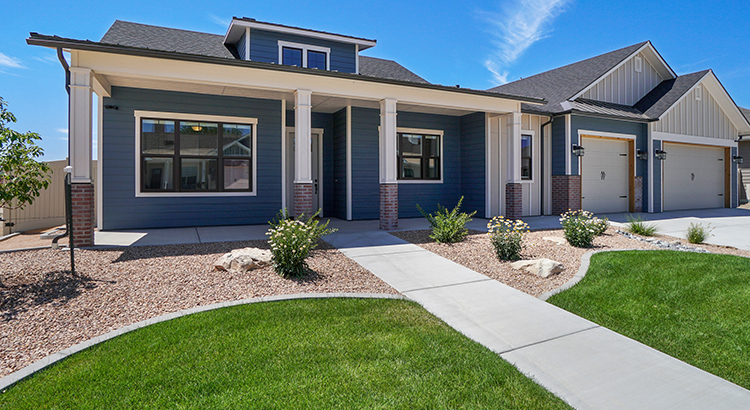
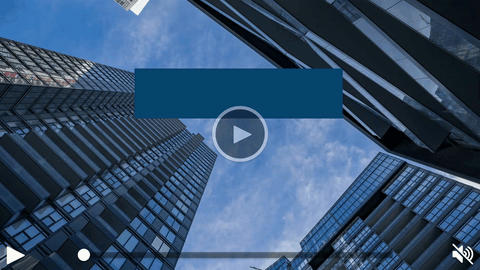

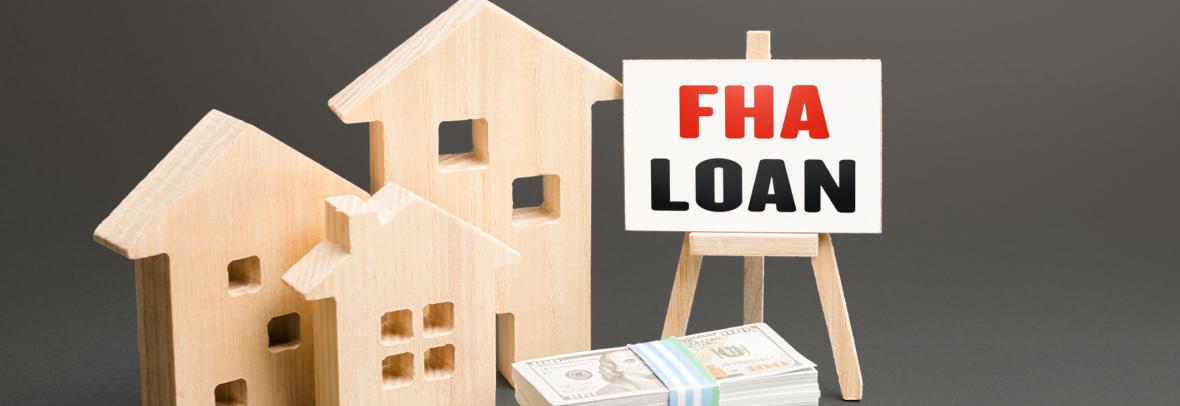

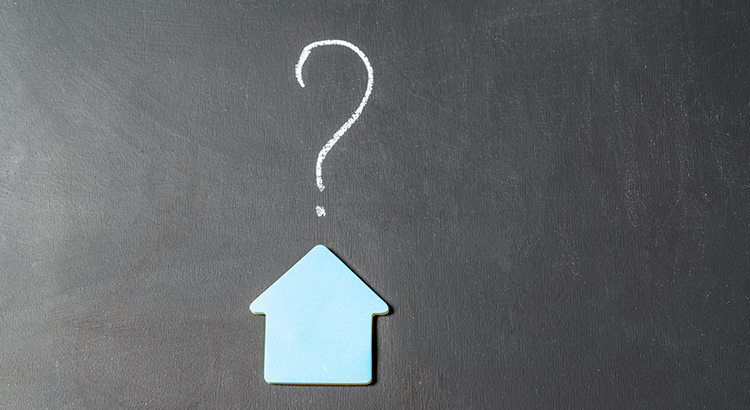

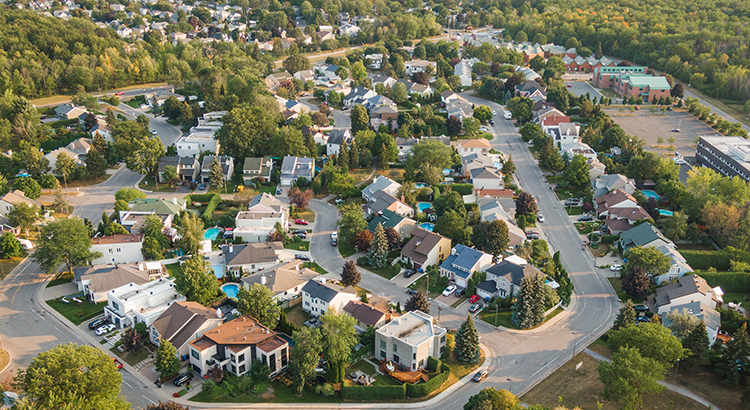


![Don’t Let Rising Inflation Delay Your Homeownership Plans [INFOGRAPHIC],Hunt Brothers Realty](https://files.mykcm.com/2022/05/18153723/20220520-MEM-1046x2334.png)
